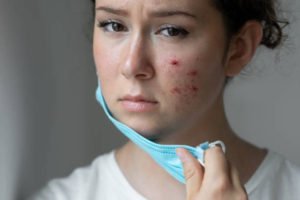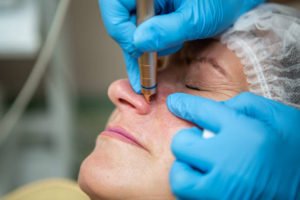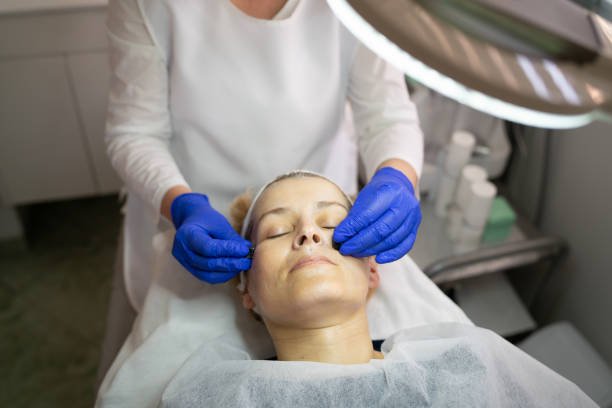Do you suffer from Rosacea? If so, you may be wondering is Rosacea an autoimmune disease or not. In this blog post, we will explore the possible links between Rosacea and autoimmune diseases. We will also discuss some of the symptoms of Rosacea and potential treatment options.
What Is A Rosacea Disease?
Rosacea is a chronic, inflammatory skin condition that most often affects the face. It typically causes redness, flushing, pimples, and visible blood vessels in the face. Rosacea can also cause burning and stinging sensations, as well as dryness and thickening of the skin. In severe cases, rosacea can lead to disfigurement.
There is no cure for rosacea, but treatments can help control the symptoms.
What Causes Rosacea And Is It An Autoimmune Disease?
The exact cause of rosacea is unknown. However, it is believed to be caused by a combination of genetic and environmental factors.
Some research suggests that rosacea may be an autoimmune disease but more studies are needed to confirm this. Autoimmune diseases occur when the body’s immune system mistakenly attacks healthy tissue. This can happen if the body mistakes a healthy protein for a harmful one.
A protein called cathelicidin has been linked to rosacea. Cathelicidin is produced by the body in response to inflammation. It is also found naturally in some foods, such as mushrooms and chili peppers.
Some research suggests that people with rosacea may have a defect in the way their bodies process cathelicidin. This defect may cause the body to overproduce cathelicidin, leading to inflammation and the development of rosacea symptoms.
However, it’s important to note that not all research agrees on this theory. More studies are needed to confirm whether or not rosacea is an autoimmune disease.
Autoimmune diseases are often difficult to diagnose because they can cause a wide range of symptoms. If you think you may have an autoimmune disease, it’s important to see a doctor for a proper diagnosis.

What Are The Symptoms Of Rosacea?
The most frequent rosacea symptom is facial redness. This redness may come and go. It can also get worse over time. Other symptoms of rosacea include:
- Flushing: Some people with rosacea may experience episodes of flushing. Flushing is when the skin turns red suddenly and then goes back to its normal color. These episodes may be triggered by certain foods, alcohol, hot drinks, weather changes, or emotional stress.
- Pimples: Pimples are a common symptom of rosacea. They may appear on the nose, cheeks, chin, or forehead.
- Visible blood vessels: People with rosacea may also have visible blood vessels on their faces. These blood vessels may be small and red or large and purple.
- Eye problems: In some cases, rosacea can also cause eye problems. These may include watery, irritated eyes or the formation of pus-filled bumps on the eyelids (blepharitis).
Rosacea symptoms can range from mild to severe. They may come and go, or they may get worse over time.
How Is Rosacea Diagnosed?
No one test can diagnose rosacea. Instead, doctors often make a diagnosis based on a person’s medical history and symptoms. A physical exam may also be done to look for signs of rosacea.
If eye problems are present, an eye exam may also be done. This is because rosacea can sometimes cause serious eye problems if left untreated.
How Is Rosacea Treated?
There is no cure for rosacea, but treatments can help control the symptoms. The type of treatment that’s best for you will depend on the severity of your symptoms.
Mild cases of rosacea may be treated with lifestyle changes and over-the-counter (OTC) medications. These may include:
- Wearing sunscreen and protective clothing when outdoors
- Avoiding triggers, such as hot drinks, spicy foods, alcohol, and weather changes
- Using OTC creams or gels that contain ingredients like metronidazole or azelaic acid
If these treatments don’t work, your doctor may prescribe stronger medications. These may include:
- Oral antibiotics: These medications can help reduce inflammation and the growth of bacteria on the skin. They are often used to treat moderate to severe cases of rosacea.
- Topical antibiotics: These are applied directly to the skin and are typically used to treat mild to moderate cases of rosacea.
- Oral isotretinoin: This medication is typically used to treat acne, but it can also be effective for rosacea. It works by reducing the production of oil in the skin. Isotretinoin can have serious side effects, so it’s important to talk to your doctor about the risks and benefits before starting this medication.
- Surgery: In some cases, surgery may be needed to treat rosacea. This is often done to remove visible blood vessels or excess tissue from the nose (rhinoplasty).

Risks And Complications
Rosacea is a chronic condition that can get worse over time. If left untreated, it can lead to serious complications, such as:
- Eye problems: In some cases, rosacea can cause serious eye problems. These may include corneal ulcers, glaucoma, and vision loss.
- Skin problems: Rosacea can also cause skin problems like acne, bumps, and scarring.
- Emotional distress: The physical symptoms of rosacea can sometimes lead to emotional distress. This may include anxiety, depression, and low self-esteem.
What Are Other Autoimmune Diseases To Watch Out For?
There are many different types of autoimmune diseases. Some common examples include:
- Rheumatoid arthritis: This is a condition that causes inflammation in the joints.
- Celiac disease: This is a condition that damages the lining of the small intestine. People with celiac disease can’t eat gluten, a protein found in wheat, barley, and rye.
- Crohn’s disease: This is a condition that causes inflammation in the digestive tract.
- Lupus: This is a chronic autoimmune disease that can affect many different parts of the body.
- Multiple sclerosis: This is a condition that damages the nerves and spinal cord.
- Type 1 diabetes: This is a condition that occurs when the body doesn’t produce insulin. Insulin is a hormone that helps the body to use sugar for energy.
There are many other types of autoimmune diseases, and new ones are being discovered all the time. Researchers believe that autoimmune diseases are caused by a combination of genetic and environmental factors. Treatment for autoimmune diseases often focuses on managing symptoms and preventing flares. Some common treatments include medication, lifestyle changes, and surgery.
Conclusion
In conclusion, whether or not rosacea is an autoimmune illness is still uncertain. Some research suggests that it may be, but more studies are needed to confirm this. If you think you may have an autoimmune disease, it’s important to see a doctor for a proper diagnosis. Treatments can help control the symptoms of rosacea. If you have any concerns about your health, be sure to talk to your doctor.
